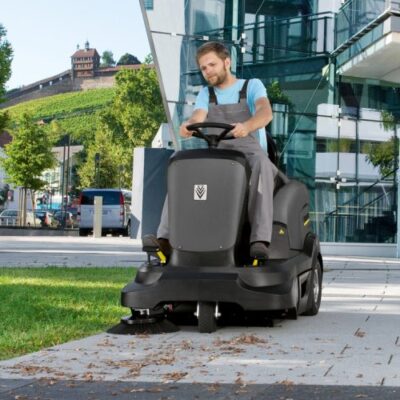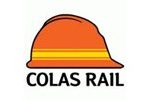If you’ve ever stared blankly at a floor sweeper and thought, “What even are you?”, you’re not alone. These unassuming machines look simple enough, but they’re hiding more secrets than your office fridge. From mysterious noises to sweeping etiquette, there’s no shortage of things people are confused about. In fact, you’d be surprised how often the same common sweeper questions keep cropping up.
To save you from awkwardly pretending you know how to use one while quietly panicking inside, I’ve pulled together the 8 most commonly asked questions about sweepers and answered them with the kind of plain-speaking honesty you wish came with flat-pack furniture. No waffle. No techy babble. Just straight explanations that might actually help you bluff your way through the next sweeping emergency.
Check out our range of Sweepers!
What’s the difference between a sweeper and a vacuum?
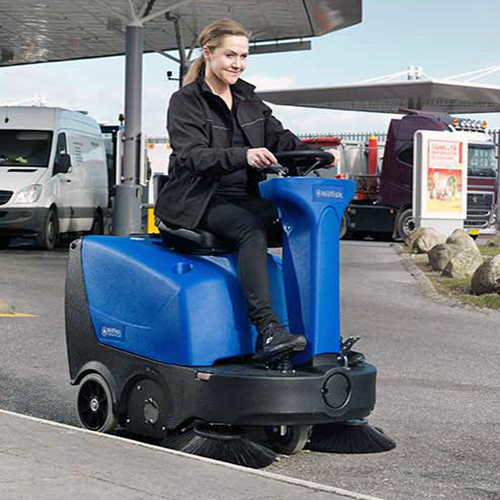
Let’s clear this up before a fight breaks out in the breakroom.
A sweeper is like a vacuum’s quieter, less dramatic cousin. Sweepers use brushes to push dirt and debris into a container. They don’t suck, literally. No air suction involved. Think of it as a manual broom on steroids.
Vacuums, on the other hand, are noisy little brutes that rely on air pressure to inhale dust, hair, paperclips, your dignity; you name it.
If you’re tackling larger debris on hard surfaces like warehouse floors or car parks, go for a sweeper. If you’re dealing with carpets or fine dust, then it’s vacuum time.
Are all sweepers powered?

Nope. Some of them are glorified hamster wheels. You’ve got two main types: manual sweepers and powered sweepers. Manual ones require you to push them, like you’re mowing an extremely flat lawn. The wheels turn the brushes, which then sweep the dirt into a little tray. Very satisfying. Very simple. Powered sweepers, meanwhile, use a motor so you’re less sweaty, and the results are usually more thorough. Great for larger spaces or if your biceps are purely ornamental.
Can a sweeper handle wet or sticky stuff?

Ah, the eternal optimism of trying to sweep up a yoghurt spill. Short answer? No. Sweepers are not miracle workers. They hate wet messes. Their brushes just smear it around like a toddler with paint. And sticky stuff? That’s a hard pass. You’ll just end up with gunk in the bristles and a deep sense of regret. If you’re dealing with spills or sticky residues, get a mop or a scrubber. Or burn the floor and start over. Your call.
How often should you empty the bin?
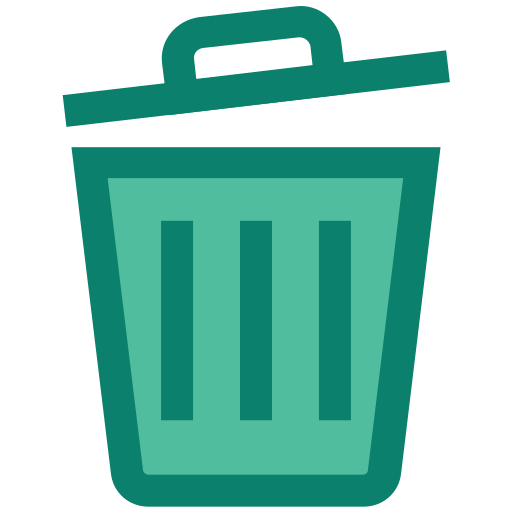
This one really depends on how dirty you are. No judgment. For manual sweepers, keep an eye on the collection tray. Once it starts to look like a squirrel’s nest or your gran’s lint collection, it’s time to empty it. Leaving it full makes the sweeper less effective and frankly, it starts to smell a bit… earthy.
With powered models, there’s often a handy indicator. Or just use your eyes. If the machine starts leaving a trail behind like it’s shedding, the bin’s full.
Can sweepers be used on carpets?

Technically yes, but let’s not get too ambitious. Some sweepers can be used on low-pile carpets, think office tiles, not shag rugs from the ‘70s. But honestly, they’re built for hard surfaces like concrete, tile, and laminate. On carpet, they’ll drag and groan and generally underperform, much like me on a Monday morning. If carpet cleaning is your goal, grab a vacuum. Or better yet, hire someone else to do it while you pretend to be in a meeting.
How long does a sweeper last?

With good care? Ages. With bad care? Well… Manual sweepers are impressively low maintenance. As long as you don’t treat them like a bumper car, they can last several years. Replace the brushes when they start looking like a toothbrush that’s seen too much. Powered sweepers require a bit more TLC. Keep them clean, check the battery (if it has one), and don’t try to run over anything metallic or vaguely alive. One of the most common sweeper questions is about lifespan but honestly, it’s less about time and more about how gently you treat it. Like your in-laws.
Do sweepers need much maintenance?

If you can handle basic adult tasks like brushing your own teeth or remembering bin day, you’ll be fine.
Give the brushes a clean now and again. Remove any string, hair, or existential dread that’s wrapped around them. Check the wheels for obstructions. For powered ones, keep the battery charged and don’t wash it with a hose (yes, someone has tried that). One reason sweepers are so popular is that they’re low-fuss. They just want to be pushed around, appreciated occasionally, and left in peace. Honestly, same.
Are sweepers really worth it?

If your current cleaning method involves a broom, a prayer, and a bad attitude, then yes. Yes, they are.
Sweepers save time, especially in larger spaces. They collect dust and debris in one smooth pass instead of chasing it around the floor like a cat after a laser pointer. They’re quiet, efficient, and don’t need a socket or a degree in engineering to operate. One of the most common sweeper questions is whether they’re just another pointless gadget. But once you’ve used one, it’s hard to go back. Brooms suddenly feel a bit… prehistoric.
Check out our range of Sweepers!
Why does my sweeper make that weird noise?

Probably because it’s full, broken, or trying to warn you about the rise of the machines. Rattling? Could be debris stuck in the brushes. Screeching? Might need oil or a brush replacement. Grinding? You’ve probably tried to sweep something that should never be swept: nails, screws, your sense of purpose, etc. Regular maintenance helps avoid the weird noises.
Is it normal for my sweeper to leave a trail?

Only if it’s cosplaying as a snail, and no, it shouldn’t. If your sweeper’s leaving behind more than it’s collecting, it’s time to check the bin, the brushes, and your life choices. Common reasons include full bins, worn brushes, or pushing too fast like you’re trying to break the land-speed record. Slow down, check the machine, and try again. The goal is clean floors, not a breadcrumb trail to your desk.
Can sweepers replace brooms entirely?
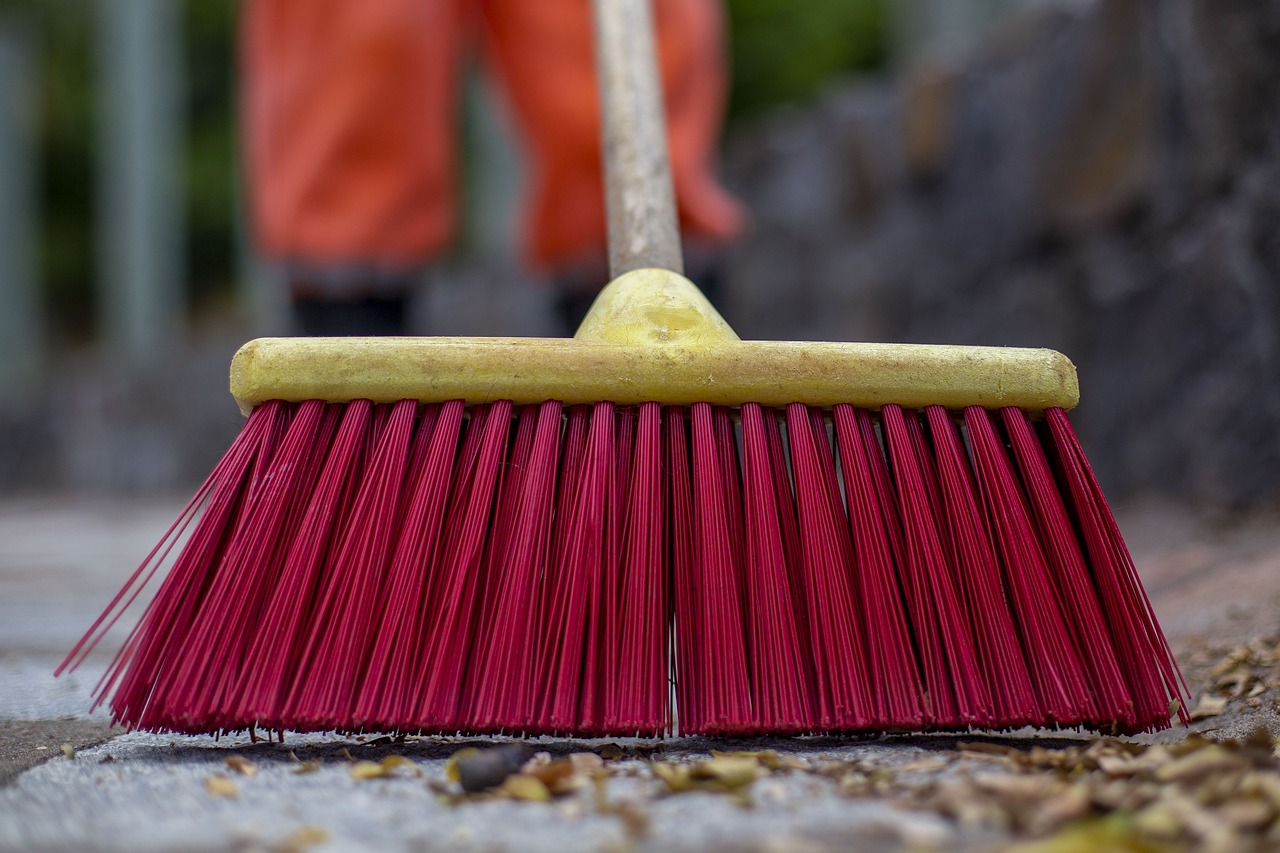
In many cases, yes, sweepers can replace brooms entirely. They’re faster, cleaner, and don’t raise clouds of dust like a witch’s exit. But for quick spot cleans or in tight corners, a broom still has its place. Much like a fax machine, rarely used, but weirdly comforting. Still, if you’re in charge of maintaining larger spaces, relying solely on a broom is a bit like trying to dig a swimming pool with a spoon.
What surfaces are sweepers best for?
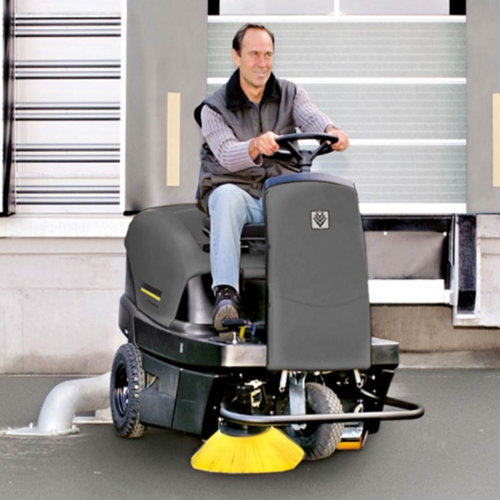
Hard floors. And not the emotional kind. Concrete, tile, linoleum, wood, sweepers love them all. They’re especially handy in warehouses, showrooms, sports halls, and other places with a lot of ground to cover and not a lot of time. If you’re wondering about outdoor use, some sweepers can handle it, but check the specs. Not all of them enjoy braving the great outdoors, much like most of us.
Is training needed to use a sweeper?

Only if you also needed training to use a door. One of the common sweeper questions is whether these machines are complex. The answer is no. If you can walk, you can sweep. Manual models are basically push-and-go. Powered ones? Slightly more buttons, but nothing to write home about. The only “training” required is being shown where the on switch is and being told not to sweep up nails, sandwiches, or your colleague’s charger cable. Again.
Can I use a sweeper in a small space?
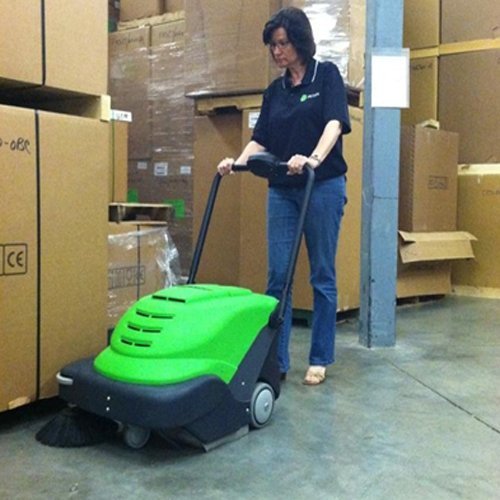
Yes, but don’t expect it to pirouette like a ballet dancer. There are compact sweepers designed for smaller spaces. Ideal for offices, small shops, or the awkward bit behind the reception desk where lost pens go to die. Just be mindful of turning space. If you’ve got less room than a phone booth, maybe stick with the broom for now. Or just get rid of all the furniture. Problem solved.
Sweepers might not come with flashing lights or a Bluetooth app, but they get the job done, quietly, efficiently, and without needing a software update every five minutes. Think of them as the reliable mate who actually shows up when it’s time to move house. So if you’re still debating whether they’re worth it, take a spin around the office with one. You’ll have answers to your common sweeper questions before you’ve even emptied the tray. And you might even enjoy it.
Check out our range of Sweepers!
Cleaning Equipment Services Ltd hire and sell a wide range of new and second-hand top-of-the-line cleaning equipment from industrial vacuums and floor scrubbers to pressure washers and floor polishers etc. Additionally, we also hire powerful steam cleaners at Pure Steam Cleaners. We’re always available to answer any questions and provide guidance on the best cleaning methods and procedures. We’re also very patient and accommodating with explaining the operation and maintenance of the equipment.

